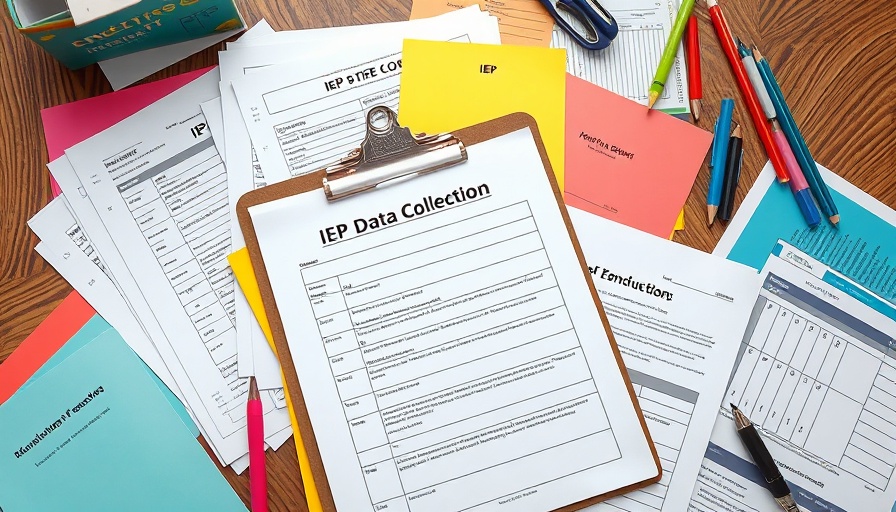
Streamlining IEP Data Tracking for Special Education Teachers
Keeping track of IEP goals can feel overwhelming for special education teachers. With so many students and diverse requirements, the challenge often seems Herculean. Fear not! Editable IEP data collection sheets are here to simplify your workload, helping you avoid the dreaded last-minute report-making marathons before IEP meetings.
The Importance of Effective Data Collection
Data collection in special education is more than just completing forms; it’s about understanding your students' unique journeys and growth over time. These tailored data sheets serve as a compass that guides your instructional strategies, enabling you to support each student's learning path. Importantly, having a structured system for data collection can enhance educators’ ability to recognize learning trends, celebrate milestones, and, if necessary, adjust teaching tactics for better outcomes.
Features of Editable IEP Data Collection Sheets
What makes these IEP data collection sheets stand out? Customizability! Educators can easily modify these templates to suit each student's specific goals. Utilize space for daily, weekly, or monthly tracking, making them adaptable depending on your schedule and your students' needs. These printable sheets can comfortably fit in binders or folders, providing quick access during busy classroom moments.
Tips for Efficiently Recording IEP Data
Recording data is often regarded as one of the most daunting tasks for special educators. However, when equipped with the right tools, it can transform into a straightforward task. For optimal data collection, consider employing various forms like probe data, event-by-event data tracking, rubrics, and even work samples. This variability not only enriches your data collection process but also makes the information more interpretable and actionable.
Addressing Common Misconceptions about IEP Tracking
Many educators worry that maintaining meticulous data for every IEP goal is a time-consuming nightmare. However, armed with customized data sheets, many teachers find that tracking progress is not only manageable but also illuminating. These sheets provide insights that you may not realize you need until you analyze the trends they illustrate. Educational growth is not just about numbers; it’s about making informed decisions to help shape students’ futures.
Future Trends in IEP Tracking Systems
As we look to the future, the integration of technology into educational tracking systems continues to grow. Platforms providing automatic data collection through student learning management systems are on the rise, further simplifying the process. The goal remains unchanged: to offer efficient, insightful, and adaptable tracking that enhances both student performance and educator satisfaction. By staying informed about emerging trends, special educators can equip themselves with necessary tools that will help make the data collection process easier and more impactful.
The Impacts of Data-Driven Instruction
Utilizing a compelling data tracking system not only boosts your efficiency but can profoundly impact student learning outcomes. Tracking IEP goals through structured data collection fosters a continuous feedback loop between you, your students, and their progress. This can empower students by showing them tangible proof of their improvement, thereby enhancing their motivation and engagement in their own learning journey.
In conclusion, adopting customizable IEP data collection sheets can transform your approach to tracking student progress. They provide structure and ease, ensuring that you remain organized and informed ahead of IEP meetings and parent communications. Embrace the opportunity to streamline this essential part of your teaching so you can dedicate more energy to inspiring your students. Now’s the time to download your editable IEP data collection sheets and start tracking progress like a pro!
 Add Row
Add Row  Add
Add 




 Add Row
Add Row  Add
Add 

Write A Comment